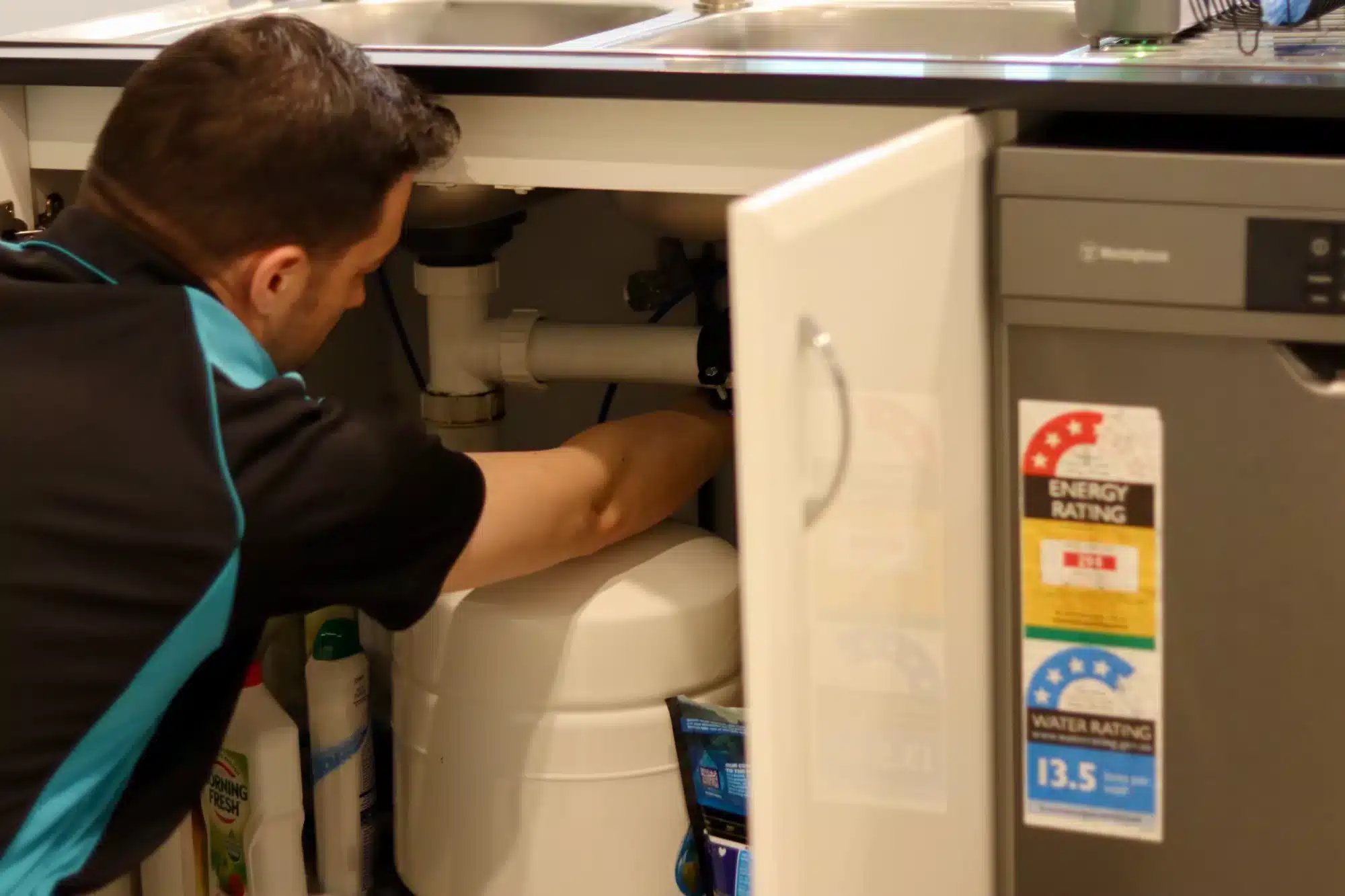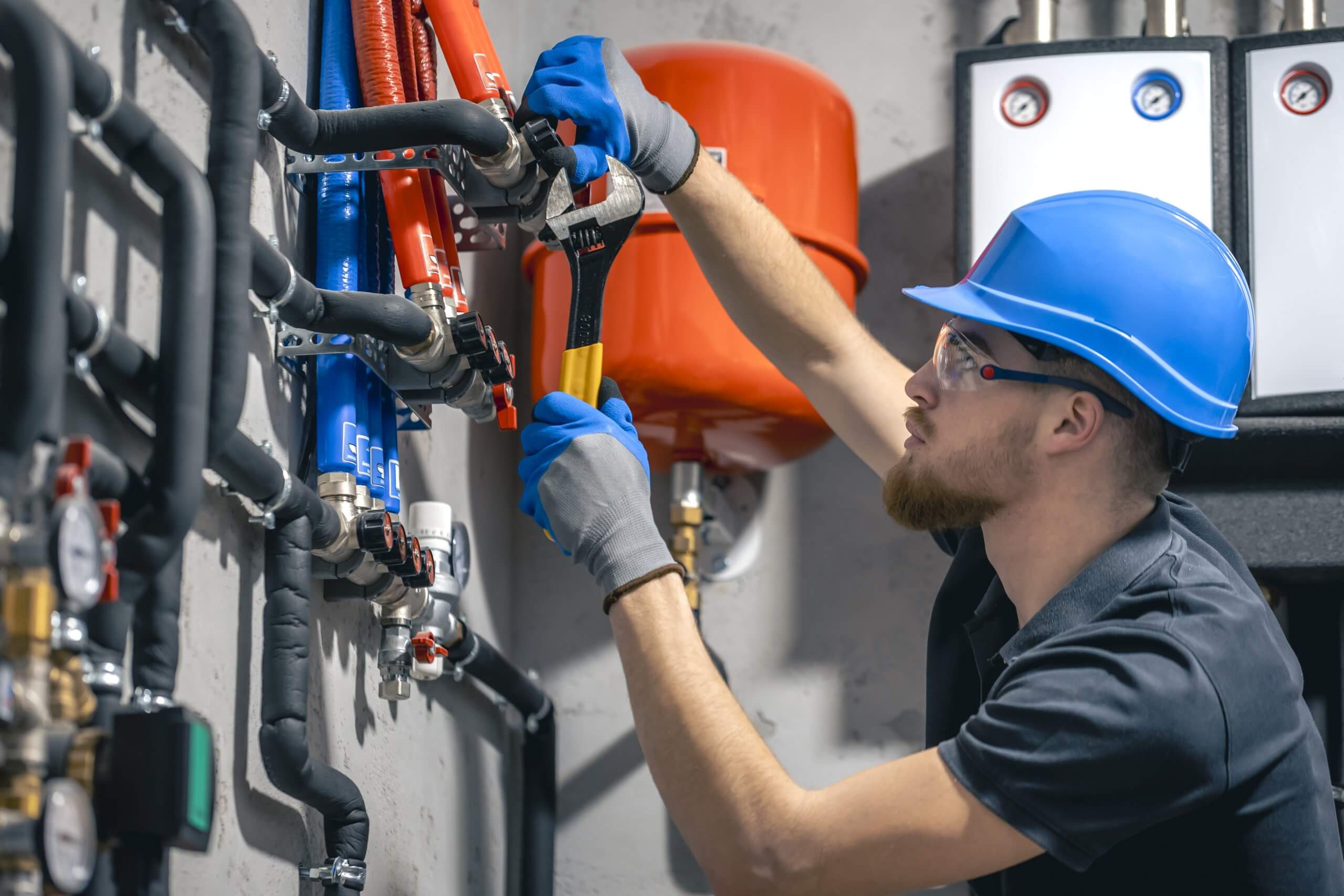A hot water system is a vital part of a household’s plumbing, ensuring a consistent supply of hot water for everyday use. Understanding the different types of hot water systems and their characteristics is essential for making informed decisions. Since a hot water system represents a significant financial investment in home comfort and functionality, homeowners should be aware of its lifespan and maintenance requirements.
Types of Hot Water Systems
Electric Hot Water Systems
A common choice for many households, electric hot water systems are convenient and widely available. They are easy to install and maintain, but may have higher energy costs compared to other systems.
Gas Hot Water Systems
Ideal for homes with access to natural gas, these systems are cost-effective and offer fast water heating. They tend to have lower operating costs than electric systems and are well-suited for large households.
Solar Hot Water Systems
An environmentally friendly option, solar hot water systems use solar panels to heat water. They are highly energy-efficient and can significantly reduce electricity bills. However, their performance depends on sunlight availability, and they typically have a higher upfront cost.
Heat Pump Hot Water Systems
These systems work by extracting heat from the air to warm water, making them one of the most energy-efficient options available. While they are more expensive upfront, they offer long-term savings on energy bills. Additionally, when comparing gas and electric systems, gas systems generally have lower operating costs and longer lifespans due to their unique maintenance needs and the impact of factors such as water quality and usage.
Continuous Flow Systems
Continuous flow systems, also known as tankless systems, are an energy-efficient option for heating water on demand. Unlike traditional storage hot water systems, continuous flow systems do not store hot water in a tank. Instead, they heat water only when needed, which can significantly reduce energy consumption. These systems can last up to 20 years or more, provided they are of high quality and receive regular maintenance. Regular descaling and cleaning are essential to prevent mineral buildup and ensure optimal performance. While the initial installation cost may be higher than that of storage tank systems, the long-term savings on energy bills and the constant supply of hot water make continuous flow systems a worthwhile investment.
Factors Affecting Hot Water System Lifespan
Quality and Material of the System
The durability of a hot water system depends on the quality of its components. Systems made from corrosion-resistant materials last longer and perform better. External factors like rust, sediment buildup, and wear and tear can also affect lifespan. Regular inspections and high-quality components are crucial for ensuring the optimal performance and reliability of a hot water heater.
Usage Patterns and Water Quality
Heavy usage puts more strain on a hot water system, potentially shortening its lifespan. Additionally, the presence of hard water, rich in minerals, can lead to scale buildup, corrosion, and decreased efficiency. Regular descaling and water treatment can help mitigate these issues. Gas systems typically last around 8-12 years, and factors such as water quality and system usage can significantly impact their longevity and maintenance needs.
Type of Hot Water System
The type of hot water system you choose can significantly impact its lifespan. Storage hot water systems, which store hot water in a tank, typically last around 10 years. Instantaneous systems, also known as tankless or continuous flow systems, can last up to 20 years due to their on-demand heating mechanism. Heat pump hot water systems, which utilize heat from the air to warm water, generally have a lifespan of 10-15 years. Solar hot water systems, which harness energy from solar panels to heat water, can last around 14 years with proper care. Regardless of the type, regular maintenance and servicing are crucial to extending the lifespan of any hot water system and ensuring a reliable hot water supply.
Average Lifespan of Hot Water Systems
The expected lifespan of a hot water system varies based on its type and maintenance level:
- Electric Hot Water Systems – Typically last 8 to 12 years.
- Gas Hot Water Systems – Generally last 10 to 15 years.
- Solar Hot Water Systems – Can last 20 years or more with proper care. Proper installation and regular servicing are crucial to maximize the efficiency and lifespan of solar systems.
- Heat Pump Hot Water Systems – Typically last 10 to 15 years.
Maintenance and Repair for a Longer Lifespan
Importance of Regular Maintenance
Routine maintenance is crucial to maximise the lifespan of a hot water system. Regular inspections help identify potential issues before they become major problems, preventing unexpected failures and costly repairs.
The anode rod is a critical component designed to attract minerals that cause corrosion. Over time, the rod deteriorates, requiring replacement to protect the tank. Checking and replacing the anode rod as needed can significantly extend the system’s lifespan.
Signs of a Failing Hot Water System
Recognizing early warning signs of system failure can help homeowners address issues before they escalate.
Inadequate Hot Water Supply
Experiencing an inadequate hot water supply can be a clear sign that your hot water system is nearing the end of its lifespan. This issue can stem from various factors, such as a faulty thermostat, a malfunctioning heating element, or sediment buildup in the tank. Regular maintenance and servicing can help prevent these problems, but if you consistently find yourself running out of hot water, it may be time to consider upgrading to a new system. A new hot water system can provide a more reliable hot water supply and improve energy efficiency, ultimately saving you money on utility bills.
Leaks or Visible Damage
Leaks or visible damage to your hot water system’s tank or pipes are serious indicators that it may need replacing. Ignoring these issues can lead to more extensive damage to your home, including water damage and mold growth. Regular maintenance and servicing can help prevent such breakdowns, but if you notice any leaks or damage, it’s essential to address the issue promptly. Upgrading to a new hot water system not only resolves these problems but also offers an opportunity to choose a more energy-efficient model, potentially reducing your energy costs and environmental footprint.
Replacing Your Hot Water System
Choosing the Best System for Your Household
When selecting a new hot water system, homeowners should consider household size, hot water usage patterns, and energy efficiency. Understanding the expected lifespan and operational costs of different systems can guide the decision-making process.
Consult with a Professional
If you’re uncertain about the lifespan of your hot water system or whether it needs replacing, consulting with a professional is the best course of action. A licensed plumber can inspect your system, diagnose any issues, and provide expert advice on the best solution. They can also help you select a new hot water system that meets your household’s needs and budget. Regular maintenance and servicing by a professional can extend the lifespan of your hot water system, but sometimes replacement is necessary. A professional can ensure that your new system is installed correctly and efficiently, providing you with reliable hot water for years to come.
What to Expect from Hot Water Services
Professional hot water service providers offer expert guidance on maintenance, repairs, and installations. They can help homeowners choose a system that best fits their needs and budget, ensuring long-term efficiency and reliability.
Conclusion
A well-maintained hot water system is essential for a steady and efficient supply of hot water. By understanding the different types of systems, the factors affecting their lifespan, and the importance of regular maintenance, homeowners can extend the longevity of their investment. Whether maintaining an existing system or considering a replacement, taking proactive steps can save time, money, and inconvenience in the long run.






